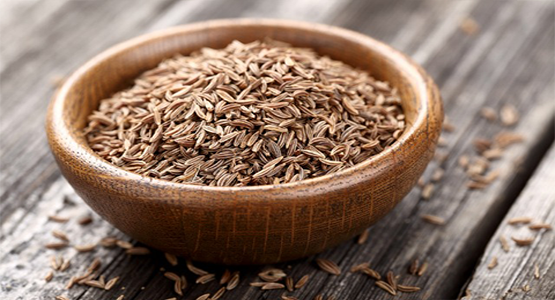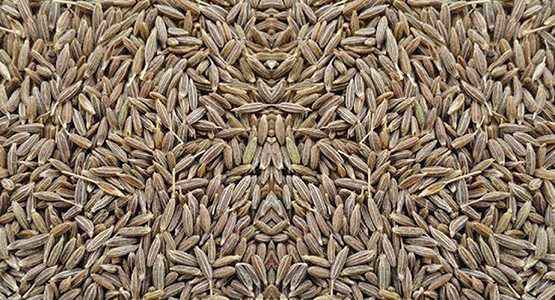Cumin is a flowering plant in the family Apiaceae, native from the east Mediterranean to South Asia
Cumin has been in use since ancient times. Seeds excavated at the Syrian site Tell ed-Der have been dated to the second millennium BC. They have also been reported from several New Kingdom levels of ancient Egyptian archaeological sites.
Uses
Cumin is used world wide in food, beverages, liquors, medicine, toiletries and perfumery. It is also used to correct broken, dilated, split capillaries. Cumin is is stimulent, carminative and astringent and useful in diarrhoea and dyspepsia.
Export
Exports are mostly to USA, Singapore, Japan, UK and North America.
Home Remedies
- Cumin seeds are used as a spice in cooking.
- It helps to cure flatulence and colic pain. After heavy meals and to children after feed it can be given to prevent intestinal colic.
- In 1 litre water add 1-teaspoon cumin seeds and boil it. This water has to be consumed the same day it should not be used the next day.
- Cumin is of benefit to the heart and uterus and is given to women after childbirth to increase breast milk.
- Cumin seeds contain good amounts of protein, fat, carbohydrates, fibre, calcium, iron and phosphorous.
- Externally it can be used in liniments for stimulating circulation and bringing warmth to the area.


